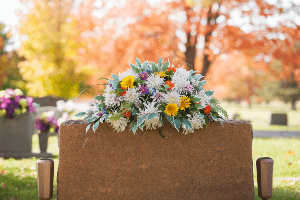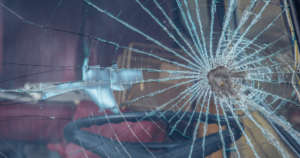 Sometimes an accident victim may die before his or her personal injury claim is resolved. The person may die because of the injuries he or she sustained in the accident or for some unrelated cause.
Sometimes an accident victim may die before his or her personal injury claim is resolved. The person may die because of the injuries he or she sustained in the accident or for some unrelated cause.
Either way, if the person was the victim of someone else’s negligence, the liable party should still be held accountable. Call our South Bend-area personal injury lawyers today to discuss your legal options.
The consultation is free, and there are no fees while we work on your case.
Was a Claim Already Filed With the Insurance Company?
It is important to establish what step in the process of a claim an accident victim was on before he or she passed away. This can help determine how to proceed to the next step in the legal process of recovering compensation.
If a claim had already been filed with the insurance company prior to the victim’s death, an attorney may recommend proceeding with a survival action to recover compensation for the decedent’s estate.
In cases when an insurance claim had not yet been filed, it may be necessary to file a wrongful death claim to pursue compensation for the victim’s surviving family.
Understanding Survival Actions
In Indiana, the estate of the decedent who suffered an injury due to someone else’s negligent actions may pursue compensation from the liable party. Compensation that may be available in this situation includes things like medical bills, lost wages, pain and suffering, and other damages.
Survival action claims are generally a continuation of a claim that was already filed by the accident victim while he or she was alive. These claims are usually carried out and paid out in the same manner as for a personal injury claim had the injured victim survived until the close of the case.
The difference between a personal injury claim and a survival action is that a representative of the person’s estate acts on the victim’s behalf. In this role, the decedent’s representative continues the pursuit of compensation and accepts the amount paid out. Whereas in a personal injury claim it would be the accident victim carrying out the process.
Because survival claims and personal injury claims are almost identical, most of the process is also the same. Where they differ is when a representative of the decedent’s estate must be named. Usually, an estate representative is someone like a spouse, parent, sibling or child. The court must approve the person before the claim may proceed.
Understanding Wrongful Death Claims
A wrongful death claim is filed when the negligent actions of a party directly causes the death of someone else. For example, if a drunk driver crashes into a vehicle and kills the driver of that other vehicle. The family of the deceased driver would have cause to file a wrongful death claim.
The key difference in a wrongful death claim is that it is the decedent’s family, usually a spouse, child or parent, who may file the claim to recover compensation for things like:
- Funeral and burial costs
- Loss of income (if the person was the primary earner in the household)
- Loss of consortium, companionship and affection
The process of these claims differs from a survival claim
Should I File a Survival Action or Wrongful Death Claim?
If the victim died due to injuries sustained in the accident for which the claim was filed, the family of the decedent may file a wrongful death claim. The decedent’s family may also file a survival action to recover the damages the injury victim suffered while he or she was alive.
However, if the individual died from something unrelated to the injuries suffered in the accident, then a survival claim may be a better course of action.
The length of time the injured victim lived after the accident may determine whether your attorney recommends seeking actions from both a survival and wrongful death claim.
Who Receives the Compensation When the Case is Resolved?
Compensation for the damages caused by someone else’s negligence, when the injury victim dies, will ultimately end up going to the decedent’s next of kin. However, there may be a different process of how it gets to them depending on the type of claim filed.
In a survival action, the compensation would go to the victim’s estate, which then gets disbursed according to the decedent’s will.
For wrongful death claims, compensation goes to the family member who files the claim. For example, the spouse of a deceased accident victim.
If both a wrongful death and survival claim are filed, then both the estate and the surviving family member would recover any compensation awarded. If the person who filed the claim is also named in the decedent’s will, then he or she would also recover some or all compensation awarded to the estate.
We Are Ready to Help. Call Today
Survival actions and wrongful death claims can be complex legal procedures even for someone who did not just lose a loved one. That is why you should talk to an experienced attorney as soon as possible.
Our attorneys have decades of experience helping victims of negligence recover maximum compensation. We are ready to help you pursue the compensation you need.
Call 844-678-1800 to schedule a free consultation.











